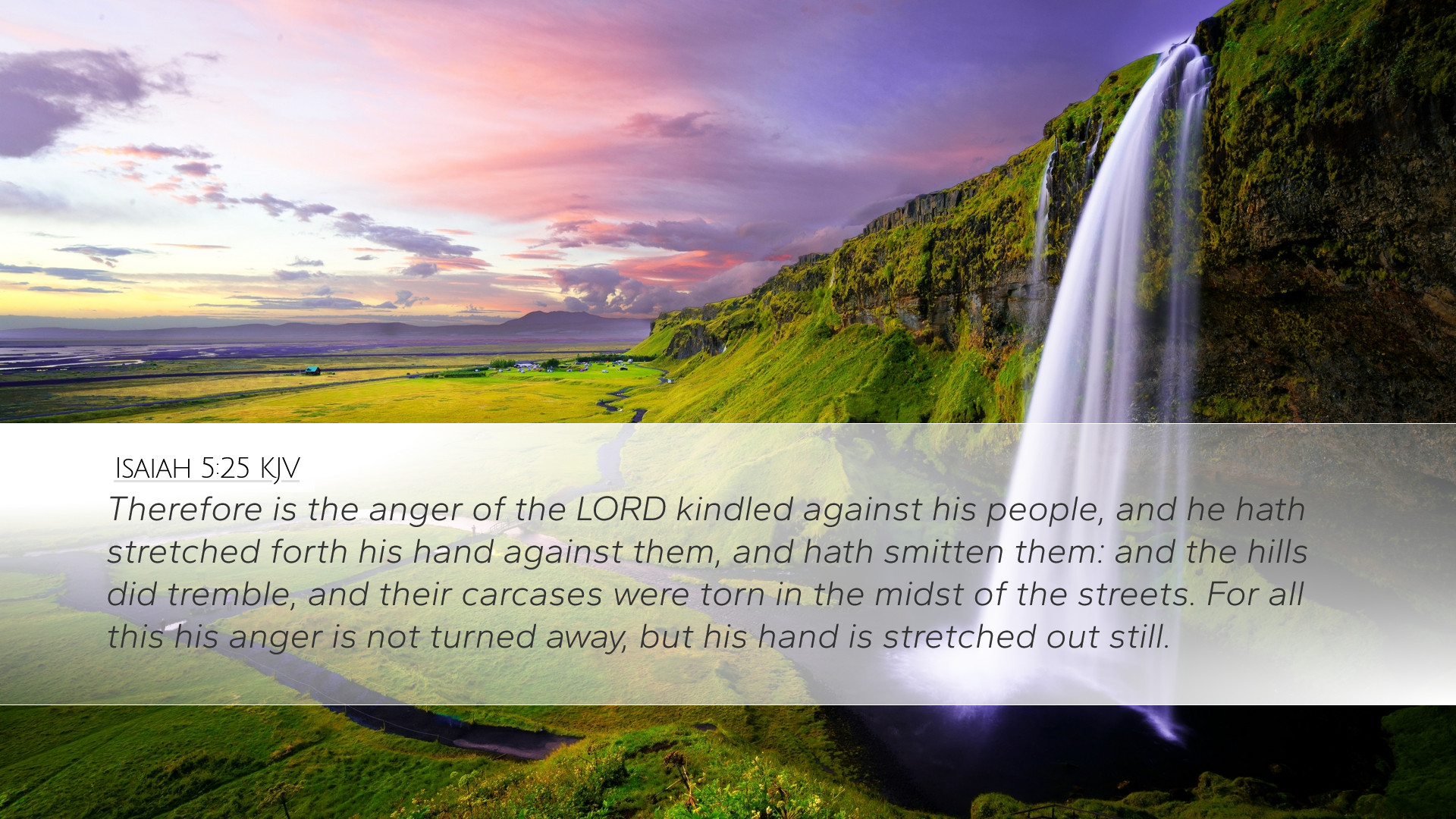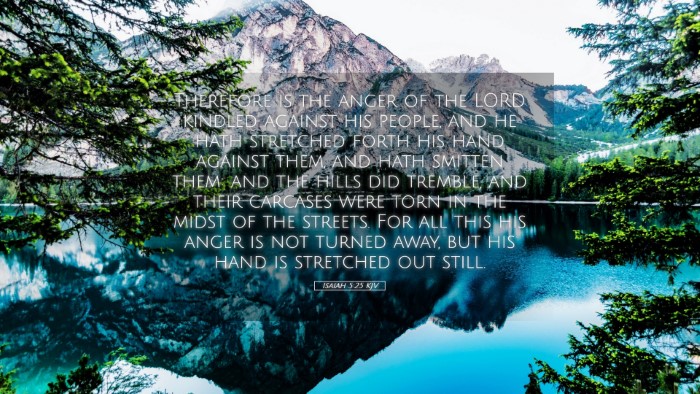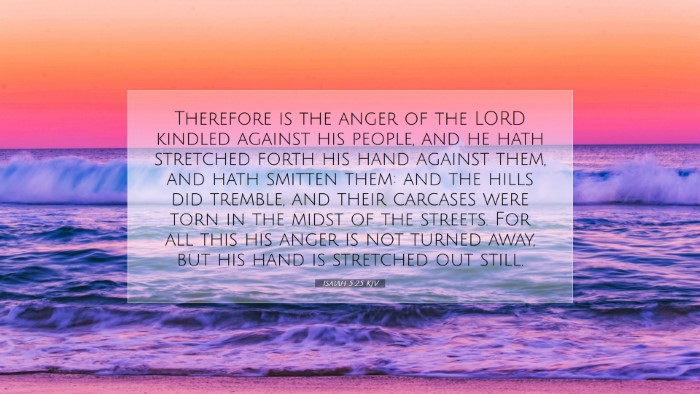Commentary on Isaiah 5:25
Isaiah 5:25 states, "Therefore is the anger of the Lord kindled against his people, and he has stretched forth his hand against them, and has smitten them: and the hills did tremble, and their carcasses were torn in the midst of the streets. For all this his anger is not turned away, but his hand is stretched out still." This passage stands as a somber reminder of God's judgment and the consequences of sin. A careful examination of this scripture through various public domain commentaries illuminates its rich theological significance.
The Context of Judgment
Isaiah’s prophetic ministry was primarily directed towards the nation of Judah during a time of spiritual decline and social injustice. The prophetic declaration of judgment in this verse underscores the seriousness of their transgressions.
Matthew Henry's Insight
Matthew Henry emphasizes that the anger of the Lord is kindled against His people because of their persistent disobedience and rebellion. He notes that God's judgment is not arbitrary but is a response to the accumulation of sin. Henry writes that the "smoting" mentioned is a direct result of Judah's failure to heed God’s warnings and that the dramatic imagery of hills trembling reflects the profound impact of God's wrath on the created order.
Albert Barnes' Perspective
Albert Barnes focuses on the idea that judicious divine retribution serves to awaken a dormant conscience within the people. He interprets the "stretching forth of His hand" as both a sign of divine intervention and an invitation to repentance—a theme consistent with other prophetic writings. Barnes argues that the mention of carcasses in the streets establishes the gravity of the judgment, illustrating the physical and spiritual desolation that results from forsaking God's ways.
Adam Clarke's Commentary
Adam Clarke provides a historical context, remarking how God's anger was primarily aimed at the leaders and influential figures of Judah. He observes that their corruption trickled down to the masses, leading to widespread moral decay. Clarke elaborates on the phrase "his hand is stretched out still," suggesting it signifies God's ongoing desire for reconciliation despite the judgment, portraying God's duality of justice and mercy.
Theological Implications
This verse invites profound reflection on the nature of God as both just and merciful. Through the lens of these commentaries, several key theological implications emerge:
- The Justice of God: The text illustrates that God's anger is not unchecked but is a measured response to a nation that has repeatedly turned away from Him.
- The Call to Repentance: The image of God’s hand stretched out suggests that even in judgment, He desires repentance and restoration.
- The Reality of Divine Judgment: The mention of physical death and destruction serves as a sobering reminder of the consequences of sin on both individual and societal levels.
- The Hope of Restoration: Even amidst wrath, there remains an underlying promise of hope, embodying the redemptive nature of God’s plans for His people.
Practical Applications for Today
For pastors, students, and theologians, this passage offers rich material for sermon preparation, teaching, and personal reflection. Here are some practical applications derived from the insights of Henry, Barnes, and Clarke:
- Understanding Sin's Consequences: Reflect on the seriousness with which God views sin and the resultant consequences, urging congregants towards self-examination and holiness.
- Encouraging Repentance: Utilize the imagery of God's outstretched hand as a motivational tool in preaching and teaching about God's willingness to forgive those who turn back to Him.
- Promoting Social Justice: Recognize the societal implications of sin highlighted in this passage and advocate for justice and righteousness within communities today.
- Exploring God's Mercy: Balance messages of judgment with reminders of God's mercy, assuring believers that no one is beyond the reach of God's grace.
Conclusion
Isaiah 5:25 serves as a critical reflection on divine justice and mercy. The insights provided by Matthew Henry, Albert Barnes, and Adam Clarke collectively deepen our understanding of the text’s implications for both ancient Israel and contemporary believers. This passage not only reminds us of the seriousness of divine judgment but also points towards the hope of God's continued presence and the possibility of redemption. May we, like the people of Judah, be moved to repentance and reconciliation, ever aware of the profound grace that accompanies our understanding of God's righteous anger.


